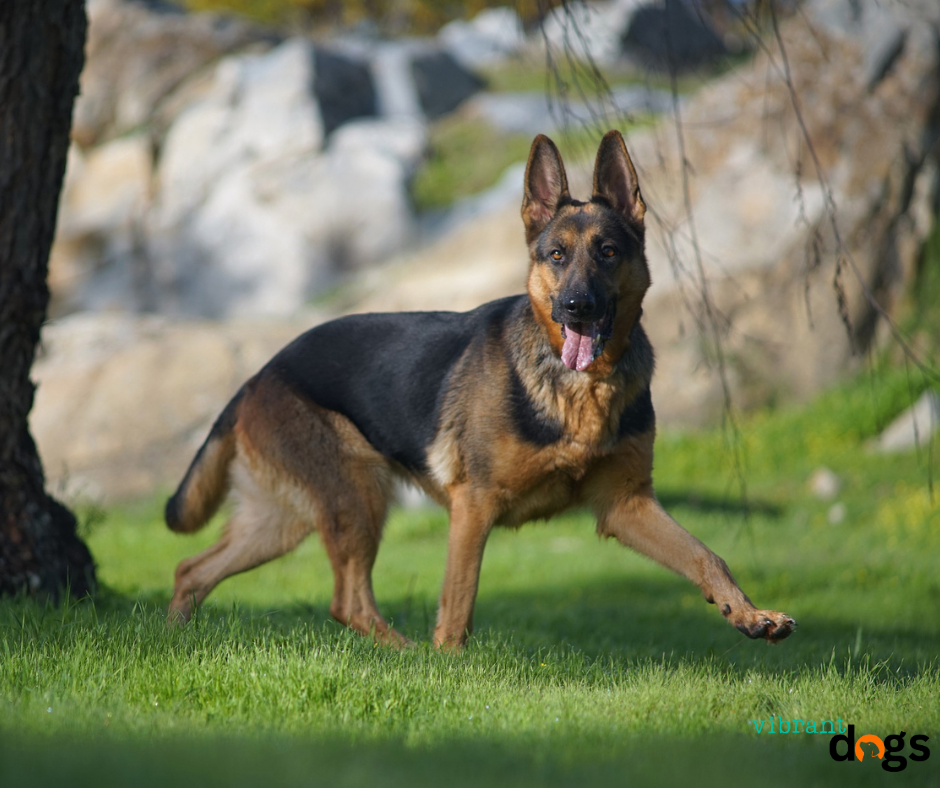Getting a Belgian Malinois puppy is thrilling and rewarding. But, it also brings special duties. This smart and lively breed needs special care and training to do well. This guide will help you raise your new dog into a loyal and well-behaved friend.
The Belgian Malinois, or “Mal,” has a deep working history and a unique look. Its striking face, strong body, and special coat colors make it a popular choice. This guide is for both new and experienced dog owners. It will help your Belgian Malinois puppy fit right into your family.
Key Takeaways
- The Belgian Malinois is an intelligent, energetic, and versatile breed with a rich working heritage.
- Proper care, training, and socialization are essential to nurturing a well-adjusted Belgian Malinois puppy.
- Understanding the breed’s unique characteristics and requirements is crucial for providing the best possible care.
- This guide covers everything from essential supplies and setup to nutrition, exercise, and behavioral training.
- By following the guidance provided, you can help your Belgian Malinois puppy reach its full potential and become a loyal, well-behaved companion.
Understanding the Belgian Malinois Breed History and Characteristics
The Belgian Malinois has a rich history, starting as a working dog in Belgium. It has grown from a humble beginning to a beloved pet and respected working dog. Known for loyalty, intelligence, and energy, it’s a favorite among many.
Origins and Working Heritage
Originally, the Belgian Malinois was a herding dog, helping shepherds manage their flocks. Its exceptional trainability and adaptability led to its use in law enforcement, military, and search and rescue. The belgian malinois shepherd mix and the black belgian malinois puppy show the breed’s versatility and popularity.
Physical Traits and Temperament
The Belgian Malinois is a medium-sized herding dog with a muscular, agile build. It has a distinctive facial mask and a short, dense coat in various colors, including the black belgian malinois puppy. Known for their energy, focus, and loyalty, they make great companions for active people and families.
Common Belgian Malinois Color Variations
- Fawn
- Mahogany
- Sable
- Black and tan
- The captivating black belgian malinois puppy
The Belgian Malinois is loved worldwide for its striking looks and exceptional abilities. Whether you’re drawn to the belgian malinois shepherd mix or the classic Malinois, this breed’s history and traits make it a remarkable pet.
Belgian Malinois Puppy: What to Expect in the First Weeks
Bringing a Belgian Malinois puppy home is thrilling and rewarding. But, it also needs careful planning. Knowing the special needs of your black Belgian Malinois puppy in the first weeks is key. It helps ensure a smooth start and a healthy, happy pet.
Belgian Malinois puppies are very smart and full of energy. They change a lot in the first weeks. Here’s what you can look forward to:
- Sleep Patterns: Belgian Malinois puppies sleep a lot, up to 18-20 hours a day. They have short energy bursts followed by long naps as they grow.
- Socialization: The first 3-12 weeks are crucial for socializing your puppy. Introduce them to new people, animals, sights, and sounds. This helps them become confident and well-adjusted.
- Behavioral Quirks: Your black Belgian Malinois puppy will show natural behaviors like mouthing, nipping, and scratching. They are exploring and learning about their world.
By knowing your puppy’s unique needs in this important time, you can give them the care and support they need. This helps them grow into a loyal and well-rounded companion.
“The first few weeks with a Belgian Malinois puppy are both exciting and challenging. With patience, consistency, and a focus on early socialization, you’ll lay the groundwork for a lifelong bond.”
Essential Supplies and Setup for Your New Puppy
Welcoming a Belgian Malinois puppy is exciting. But, you must prepare well to ensure their comfort and safety. You’ll need to create a safe space and get the right training and grooming supplies.
Creating a Safe Living Space
First, puppy-proof your home to avoid accidents. Use sturdy gates to block off areas you don’t want them in. Keep cleaners, meds, and small items out of reach. Give them a comfy sleeping spot with a bed and toys for fun.
Must-Have Training Equipment
Training is key for the smart and energetic Belgian Malinois. Get a good leash, collar, and harness for walks and training. A clicker, treats, and interactive toys will make learning fun and rewarding.
Feeding and Grooming Supplies
Feed your Belgian Malinois a balanced, high-quality diet. Choose puppy food made for their needs. Have sturdy bowls for food and water. Regular grooming is important, so get a brush, nail clippers, and dog-safe shampoo.
Preparing your home and getting the right supplies will help your Belgian Malinois puppy settle in well. This will ensure a happy and healthy start in their new life with you.
Nutrition Guidelines for Growing Malinois
Proper nutrition is key for your Belgian Malinois puppy’s growth. These dogs need the right food as they grow. Knowing what to feed your Belgian Malinois or Belgian Malinois German Shepherd mix is important.
Feeding Schedule and Portion Sizes
Belgian Malinois puppies need more food than adult dogs. Feed them 3-4 small meals a day. As they grow, switch to 2 meals a day. The right amount depends on their age, size, and how active they are. Aim for 20-30 calories per pound of body weight.
Selecting Nutrient-Dense Food
Choose dog food that’s high in protein for your Belgian Malinois. Look for formulas made for large-breed puppies or active dogs. These foods should have:
- High-quality protein sources, such as chicken, beef, or lamb
- Healthy fats for energy and coat health
- Vitamins and minerals to support bone, muscle, and immune system development
- Fiber to aid in digestion
Remember, a Belgian Malinois might need different food than a Belgian Malinois German Shepherd mix. Always check with your vet for the best diet for your puppy.
Hydration and Supplements
Drinking enough water is as important as eating right for your Belgian Malinois. Make sure they always have clean, fresh water. Your vet might also suggest supplements like joint support or omega-3 fatty acids for better health.
| Nutrient | Recommended Amount for Belgian Malinois | Recommended Amount for Belgian Malinois German Shepherd Mix |
|---|---|---|
| Protein | 22-32% of total diet | 24-34% of total diet |
| Fat | 12-18% of total diet | 14-20% of total diet |
| Carbohydrates | 30-40% of total diet | 28-38% of total diet |
Every Belgian Malinois or Belgian Malinois mix is different. It’s crucial to work with your vet to find the best nutrition plan for your puppy.
Early Socialization and Basic Training Methods
Raising a well-adjusted belgian malinois husky mix needs early socialization and basic training. In your puppy’s early stages, exposing them to new things and teaching commands is crucial. This helps them grow into a confident, obedient friend.
Critical Socialization Periods
The first few months of a belgian malinois husky mix puppy’s life are key for socialization. They are most open to new experiences during this time. Make sure your puppy has good experiences with people, animals, and places to help them grow well-rounded.
Basic Command Training
- Start with essential commands like “sit,” “stay,” and “come” to build a foundation of obedience.
- Use positive reinforcement, such as treats and praise, to encourage desired behaviors and make training a rewarding experience.
- Be consistent and patient, as belgian malinois husky mix puppies have high energy levels and may require more repetition to master commands.
Leash Training Fundamentals
Introduce your belgian malinois husky mix puppy to a leash early. Start by letting them get used to the leash, then work on walking calmly by your side. Rewarding good leash behavior helps your puppy learn to walk politely.
| Socialization Tip | Training Technique |
|---|---|
| Expose your belgian malinois husky mix puppy to a variety of people, animals, and environments. | Use positive reinforcement, such as treats and praise, to encourage desired behaviors. |
| Introduce the leash gradually and reward calm leash behavior. | Be patient and consistent, as belgian malinois husky mix puppies have high energy levels. |
By focusing on early socialization and basic training, you can help your belgian malinois husky mix puppy become well-adjusted and obedient. Use consistent, positive methods to ensure your puppy’s success.
Exercise Requirements and Mental Stimulation
Belgian Malinois puppies need lots of exercise and mental challenges to stay healthy and behave well. Without enough, they might get bored, act out, or have behavioral problems.
To keep your Belgian Malinois puppy fit and sharp, offer a variety of activities. These should match their natural instincts and energy levels.
Physical Exercise Needs
- They need at least 60 minutes of active play each day, spread out in several sessions.
- Activities like jogging, agility training, fetch, and swimming (when they’re ready) are great.
- As they grow, increase the time and intensity of their workouts.
Mental Stimulation Strategies
- Teach them basic commands like “sit,” “stay,” and “come” through obedience training.
- Use puzzle toys and food-dispensing toys to test their problem-solving skills.
- Try scent work, like hiding treats for them to find, to tap into their hunting instincts.
It’s crucial to give your Belgian Malinois puppy plenty of physical and mental challenges. Tailor activities to their age, energy, and needs for a balanced life.
| Physical Exercise | Mental Stimulation |
|---|---|
|
|
“A bored Belgian Malinois is a destructive Belgian Malinois. Keeping them physically and mentally challenged is essential for their well-being.”
By meeting your Belgian Malinois puppy’s exercise and mental needs, you help them become a happy, well-adjusted, and well-behaved pet.
Health Considerations and Preventive Care
As a proud owner of a Belgian Malinois or a belgian malinois shepherd mix, it’s crucial to prioritize your pup’s health and well-being. These active and intelligent canines are susceptible to certain breed-specific health concerns that require your vigilance and proactive care.
Common Health Issues
Belgian Malinois are generally healthy dogs, but they may be prone to conditions such as hip and elbow dysplasia, epilepsy, and skin allergies. Regular veterinary checkups and early detection of any potential issues can help ensure your pup’s long-term well-being.
Vaccination Schedule
- Puppy vaccinations should begin around 6-8 weeks of age and continue at 3-4 week intervals until your belgian malinois shepherd mix reaches 16 weeks old.
- Core vaccines include distemper, parvovirus, coronavirus, parainfluenza, and rabies.
- Non-core vaccines, such as those for Leptospirosis and Bordetella, may be recommended based on your local area and your veterinarian’s guidance.
Regular Health Checkups
Routine veterinary visits are essential for maintaining your Belgian Malinois’s optimal health. Your vet will perform physical examinations, monitor growth and development, and recommend appropriate preventive measures, such as heartworm and flea/tick prevention. These regular checkups can help identify any potential health concerns early on and ensure your pup receives the necessary care and treatment.
| Preventive Care Checklist | Frequency |
|---|---|
| Veterinary Wellness Exams | Annually |
| Vaccinations | As per schedule |
| Heartworm Testing and Prevention | Annually |
| Flea, Tick, and Parasite Prevention | Monthly |
| Dental Cleanings | Annually |
By staying on top of your belgian malinois shepherd mix’s health and preventive care, you can help ensure a long, happy, and healthy life for your furry companion.
Behavioral Training and Problem Prevention
Raising a Belgian Malinois puppy needs a lot of work on behavioral training. These smart and active dogs can get into trouble if not trained right. But, with the right steps, you can teach them good habits and strengthen your bond.
Positive Reinforcement Training
Positive reinforcement is key for training your Belgian Malinois puppy. Reward them with treats, praise, or play for good behavior. This way, you encourage the right actions and stop the wrong ones.
Preventing Behavioral Issues
- Give them lots of exercise and mental games to keep them from getting bored and destructive.
- Make a routine and slowly get them used to being alone to prevent separation anxiety.
- Give them safe toys to chew on to stop chewing on things they shouldn’t.
- Teach them when and how to bark to stop excessive barking.
By using positive training and tackling problems early, your Belgian Malinois puppy will grow up well-behaved and confident. With patience and consistency, you’ll lay a solid foundation for their future.
Popular Belgian Malinois Mixes and Their Traits
Thinking about getting a new pet? A Belgian Malinois mix might catch your eye. These dogs mix the Belgian Malinois with other breeds. This creates pets with unique personalities and needs.
Belgian Malinois German Shepherd Mix
The Belgian Malinois German Shepherd mix, or “Shepmalinois,” is smart and full of energy. They inherit the loyalty and work ethic from both parents. These dogs love to stay active and learn new things.
They’re great for families who enjoy outdoor activities. They excel in agility, herding, and search and rescue. This makes them perfect for active homes.
Belgian Malinois Husky Mix
The Belgian Malinois Husky mix, or “Malinusky,” combines the Husky’s energy with the Malinois’ work skills. They often have the Husky’s eye-catching face and the Malinois’ strong body. These dogs need lots of exercise and social time to stay happy.
Choosing a Belgian Malinois mix needs careful thought. They’re not for beginners. But, for those ready to commit, they offer loyalty, smarts, and energy.
Conclusion
Raising a Belgian Malinois puppy is both rewarding and challenging. This smart and loyal breed needs careful care, lots of training, and plenty of mental and physical activities. Knowing the breed’s history, traits, and needs helps you give your puppy a strong start.
It’s important to socialize your puppy early, start training early, and make sure they get enough exercise. This is key for their happiness and your enjoyment of their company. With patience, consistency, and a love for the breed, you’ll build a strong bond with your puppy.
By understanding and meeting your Belgian Malinois puppy’s needs, you’ll have a fulfilling experience. This guide has given you the tools to raise a happy, well-behaved, and joyful puppy. Your puppy will be a loving member of your family for many years.




